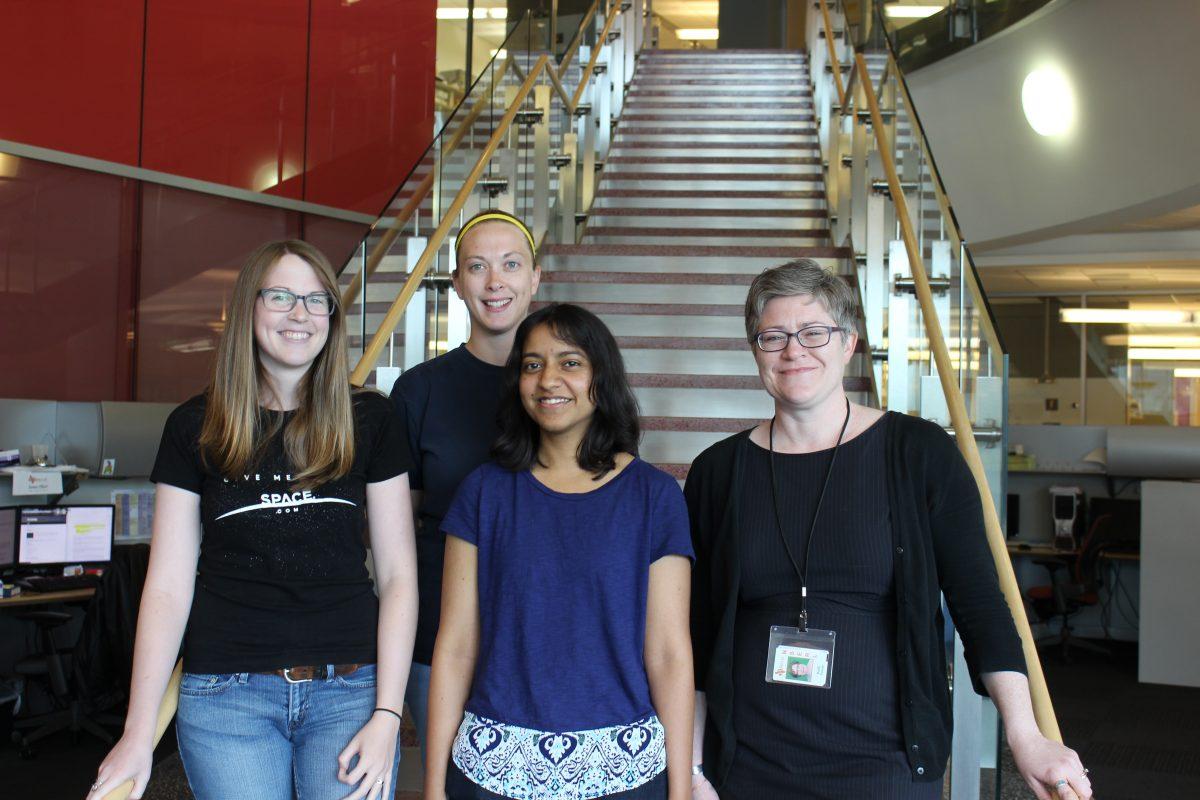Move to support research on bacterial defense mechanism
An assistant professor in the School of Natural Science and Mathematics received a $1.9 million, five year grant from the National Institute of Health to study antibiotic resistance in bacteria.
Kelly Palmer’s grant — which was drafted in collaboration with Michael Zhang, the Cecil H. and Ida Green Distinguished Chair of Systems Biology Science — placed in the top 15 percent of grants submitted to the NIH. Palmer explained that this funding opens opportunities for further grants to support UTD’s endeavors in science, technology, engineering and mathematics research.
“The money is used to pay for salaries, research in the summer months, (to buy) lab supplies and genome sequencing, which can be quite expensive,” Palmer said.
Palmer studies antibiotic resistance in her laboratory by analyzing the Enterococcus bacteria’s uptake of foreign bacterial DNA, or plasmids, that code for antibiotic resistant genes.
“We’re interested in the defense mechanisms in Enterococci that prevent them from taking up the plasmids,” Palmer said. “The two (mechanisms) we study are called restriction modification and CRISPR-Cas.”
The lab’s graduate research students run daily experiments to clone bacteria, identify genes and check the functionality of defense systems. These tasks require the researchers to spend up to half a day in the lab.
Hannah Adams, a Ph.D. candidate in molecular and cellular biology, said that the 12-hour workdays are worth the effort.
“Usually if I’m in the lab for that long, it’s because I’m trying to get a really important experiment finished,” Adams said. “The idea of getting that great data pushes you forward.”
Although they have a large time commitment, Palmer and her graduate researchers share a desire to achieve a quick turnaround of results to show their progress to the NIH.
“In five years, we hope to renew the grant,” Palmer said. “We would say, ‘look at all we accomplished with the first round of money you gave us.’ We need to understand how antibiotic resistance evolves in the clinic.”
The $1.9 million grant covers the lab’s operating costs, but the funding is not enough to provide for the purchase and upkeep of advanced genome sequences at UTD. Currently, the Palmer lab sends their samples to labs at the University of Michigan, Johns Hopkins University and the University of California at San Diego for assistance with genome sequencing.
A core facility at UTD would require technicians who can work with samples from the research labs.
“The dream would be to have a core facility at UTD,” Palmer said. “I think there’s a need for one. We could provide some money … for the upkeep with other researchers.”
Despite the need for funding, obtaining the grant was not easy. Palmer’s grant was not awarded after her initial application.
“I was emotional,” she said. “I got feedback and peer-review on how to refine the ideas. It’s easy to be upset about the initial failure, but you realize the reviewers are trying to help you be a better scientist.”
Palmer said it was important to use the second opportunity to make her research better meet the needs outlined by the NIH.
“The message there is ‘don’t give up,’” Palmer said.




